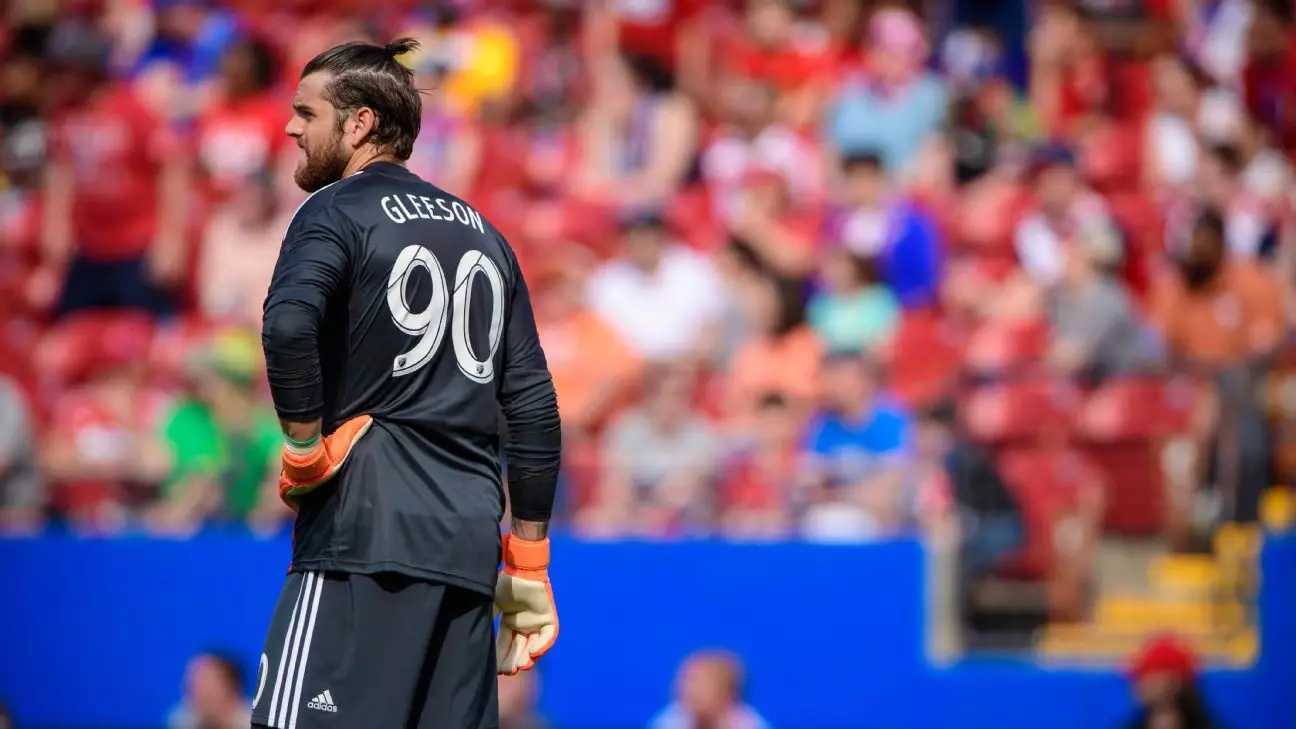In a landmark decision that signifies accountability in the medical field, former Portland Timbers goalkeeper Jake Gleeson has emerged victorious in his legal confrontation against Dr. Richard H. Edelson. This case, which culminated in a jury awarding Gleeson over $20 million, sheds light on the grave consequences of medical negligence. It also serves as a vital reminder of both the physical and emotional toll that can accompany medical procedures—especially when expectations of professionalism are sharply violated.
Gleeson, now 34, was a promising soccer player on the brink of furthering his professional career when a routine surgery for stress fractures became a grim turning point. What was intended to be a corrective measure to enhance his athletic performance spiral led to a series of unexpected tragedies. At the core of this case is the allegation that the surgical instruments, specifically the plates implanted into his legs, were not adequately sterilized. Instead of enhancing his quality of life, the procedure resulted in severe infections, requiring Gleeson to undergo 14 grueling surgeries, effectively ending his career as a professional athlete.
Emotional Toll
The implications of this legal battle stretch beyond financial compensation. Gleeson spoke candidly about the personal struggle he endured over the past six and a half years. “Some days are better than others,” he admitted in a Zoom call following the verdict, capturing the essence of his emotional rollercoaster. His situation illustrates the unseen psychological scars that are often overlooked in discussions surrounding medical malpractice. It’s essential to spotlight not just the physical agony endured by patients like Gleeson but also the mental anguish that accompanies it.
Beyond physical restoration, the crux of Gleeson’s case lies in the ethical responsibilities that doctors must uphold. He expressed a salient point pivotal to medical practice: “When you put your life in the hands of a physician, you hope they will follow guidelines to ensure your safety. It doesn’t matter if you’re an athlete or work at a desk job.” This statement encapsulates the expectation patients hold when they sign consent forms, placing their trust in medical professionals to act in their best interests.
The Jurisdiction of Responsibility
The case reflected the complexities surrounding medical malpractice lawsuits. It is interesting to note that while Gleeson named Dr. Edelson and Oregon Outpatient Surgery Center in his suit, other parties, including the Timbers organization, remained untouched by the litigation. Throughout the court proceedings, the defense clung to the assertion that complications and infections post-surgery are common risks. However, the jury’s unanimous decision on multiple counts of negligence presents a clear indictment of malpractice.
The emotional weight carried by Gleeson was evident during the trial, with testimony from former teammates emphasizing both his plight and the collective moral obligation of the medical community to uphold high standards. It begs the question—how often do we allow systems and individuals to evade accountability for their actions? The jury’s resounding agreement in favor of Gleeson raises a critical dialogue around the nature of negligence in the medical field and the repercussions for practitioners who fail to meet their obligations.
Financial Repercussions and Future Advocacy
The financial award handed down to Gleeson—over $20 million in total damages—highlights an essential dialogue regarding the valuation of suffering. It reflects both his past medical expenses and future earning potential, as he is now faced with a lifetime of physical limitations. Notably, the jury’s breakdown of awards showcases tangible losses, including $15.675 million for non-economic damages—a category illustrating the suffering, pain, and loss of enjoyment of life he has endured.
In light of these events, Gleeson now steps into a new role as an advocate for patient rights and safety. He emphasizes the necessity for increased scrutiny of medical practices and better patient education regarding surgical procedures. His experience can offer invaluable lessons in reforming how consent and risk are communicated in clinical environments.
Overall, this case serves not only as a win for Gleeson but as a beacon of hope for many individuals subjected to the vagaries of medical negligence. It opens the door to vital conversations about ethics, accountability, and the fundamental rights of patients in their journey toward recovery. Through this experience, Gleeson’s narrative resonates as a powerful testament to resilience and the enduring fight for justice in the medical community.

